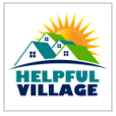DC Villages Work to Combat Social Isolation
Building personal connections and strong communities for the District’s older adults
is the primary focus for the DC Villages in countering the public health crisis
of loneliness and social isolation
WASHINGTON, D.C. — Social isolation, which the U.S. Surgeon General has declared a public health crisis in the United States, can be one of the hardest parts of growing older, which is why more than half the activities the DC Villages perform each year focuses on building social connections and supports for older adults in the District of Columbia.
Dr. Vivek Murthy, the U.S. Surgeon General, released this week the first-ever report on loneliness and isolation in the United States, highlighting the health risks that come from a loss of social connection. “Social connection is as fundamental to our mental and physical health as food, water, and sleep,” Murthy said in releasing the report.
According to the report, Our Epidemic of Loneliness and Isolation: The U.S. Surgeon General’s Advisory on the Healing Effects of Social Connection and Community, the highest rates of social isolation are among older adults. This can lead to increased risk of undiagnosed and uncontrolled hypertension, diabetes, and accelerated cognitive decline. Both social isolation and loneliness are also known to increase the likelihood of depression or anxiety for older adults. The report notes that social isolation among older adults accounts for an estimated $6.7 billion in excess Medicare spending annually, largely due to increased spending on hospitals and nursing facilities.
“While the Surgeon General’s report shows that loneliness and isolation are a serious problem for people of all ages, the risks for older adults are especially acute,” said Denise Snyder, executive director of Foggy Bottom West End Village. “To help foster the social activities and supports that strengthen community connections, each of the DC Villages focuses on building a resilient network of neighbors helping neighbors.”
The DC Villages are a group of 13 grassroots organizations operating in neighborhoods throughout the city. They provide services and support, such as transportation, health and wellness programs, home repair, and social and educational activities. All 13 DC Villages are part of the Washington Area Villages Exchange, which supports the more than 75 Villages operating in the Greater Washington region of DC, Maryland, and Virginia.
Last year, DC Village volunteers spent more than 27,500 hours working to combat social isolation and helping to ensure older residents are able to remain engaged and valued members of their community. More than 55 percent of DC Village activities are focused specifically on combatting social isolation. This include connecting one-on-one with older adults regularly; sponsoring support and mutual aid groups; and organizing social, educational, and recreational events.
A survey of DC Village members last summer found that the vast majority of members value their local Village most for the social connections and the sense of communal belonging the Village provides. Eight-four percent of respondents felt that belonging to their Village improved their quality of life, and 92 percent said being part of a Village made them feel like part of a caring community.
“In many ways, Villages resemble a family, “ said Kathy Pointer, director of Kingdom Care Senior Village in Ward 8. “We provide a place for older adults to grow and learn; we support one another; and we share in activities. The goal is to support each individual in the community so they can remain independent, stay safe, and enjoy their lives.”
Villages are organized at the grassroots level with a large volunteer base, and most have few or no staff. Their services are funded primarily through donations and dues; all Villages offer some level of membership subsidy to ensure they are available to anyone who wants to participate, and some Villages have no membership fee at all. The goal is to build the community networks people may need as they age without having to draw disproportionately upon public services or family caregivers.
To learn more about the DC Villages, the services they provide, and how to join or volunteer, contact your local Village, listed below. Visit the Department of Aging and Community Living’s Senior Villages Locator Map to view approximate Village boundaries.
- Capitol Hill Village
- Cleveland & Woodley Park Village
- Dupont Circle Village
- East Rock Creek Village
- Foggy Bottom West End Village
- Georgetown Village
- Glover Park Village
- Greater Brookland Intergenerational Village
- Kingdom Care Senior Village
- Mount Pleasant Village
- Northwest Neighbors Village
- Palisades Village
- Waterfront Village
– 30 –
About DC Villages: The DC Villages are a group of 13 neighborhood-focused, grassroots communities across the District of Columbia focused on building community capacity to support older adults’ ability to live independently. For more information about DC Villages, contact Denise Snyder, Executive Director of Foggy Bottom West End Village, at 202-333-1327 or email [email protected].


